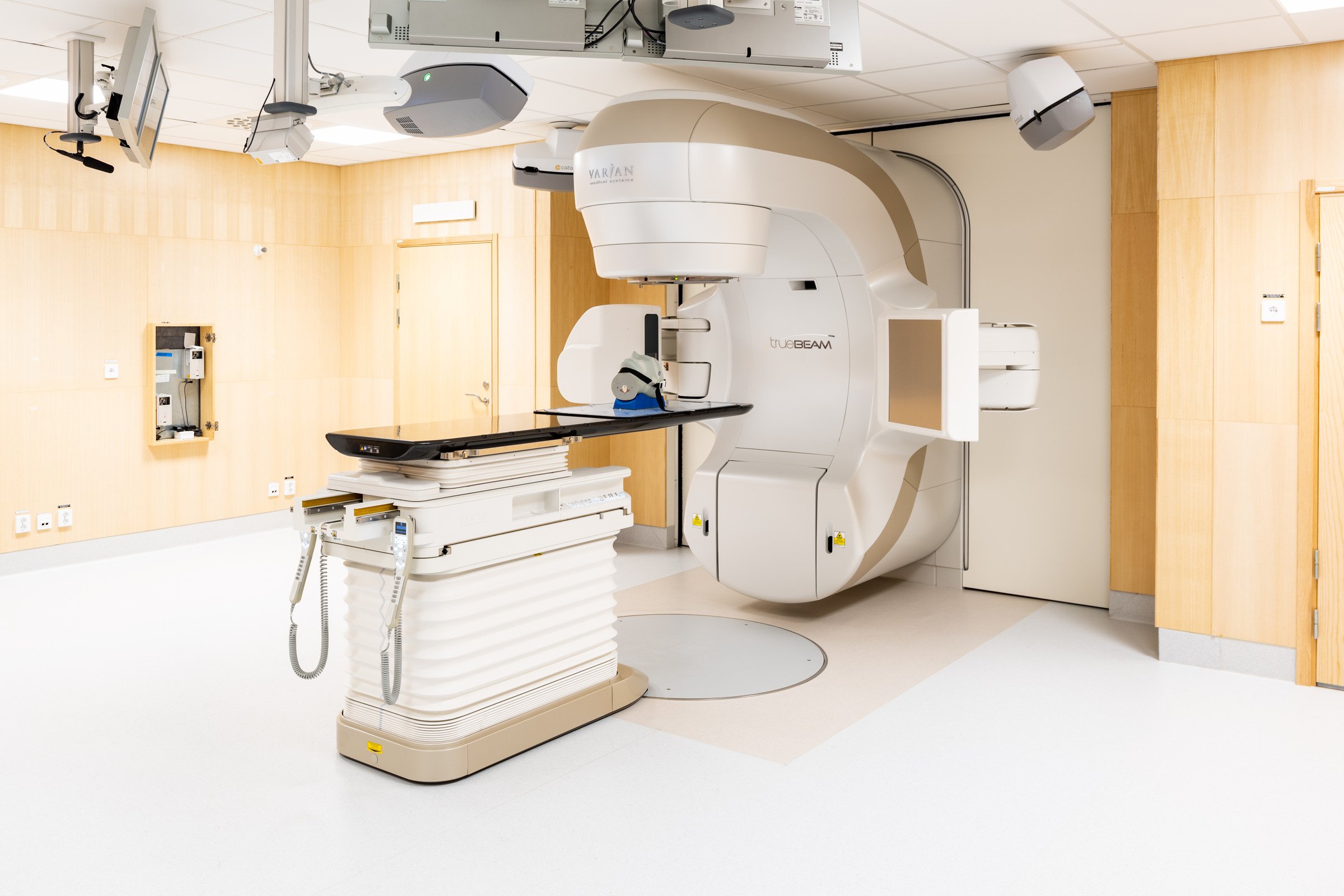Our team of experts customizes every treatment to ensure the best possible outcomes, always at the cutting edge to increase precision and minimize side effects.
Robotic surgery
The clinic has been a pioneer in robotic surgery, and the technique was introduced to the department as early as 2002. Today the urology clinic is one of the world’s leading clinics in urological surgery, with a very high volume of robot-assisted surgeries. Surgeons worldwide regularly visit Karolinska to learn more about robotic surgery. We treat prostate cancer with excellent results by providing specialized and highly specialized urology surgery and robotic surgery. We are currently performing robotic surgery using both Da Vinci and HUGO systems.
Radiation therapy
Radiotherapy is a curative treatment method for prostate cancer. There are different types of radiotherapy: external beam radiotherapy, brachytherapy, and a combination of these treatments.
Comparative studies regarding the therapeutic effects of surgery versus radiotherapy are limited and have so far shown little difference in oncological outcomes for localized prostate cancer. Both methods may be used. Radiation is recommended for locally advanced tumors, often in combination with hormones.
Brachytherapy
Brachytherapy, most often used in combination with external beam radiotherapy, means that the radiation source is brought into the cancerous tumor, making it possible to deliver very high doses of radiation to the tumor and reduce the risk of side effects for surrounding organs. This method was introduced in 1998 at Karolinska University Hospital, and currently Karolinska is one of the treatment centers with the most experience in brachytherapy.
External radiation is delivered from a linear accelerator directed to the prostate gland multiple times, often over several weeks. To reduce side effects and enhance the safety of the delivery of the dose, small gold markers are used to position the patient. These gold markers are inserted in the prostate via the rectum using ultrasound before planning the radiotherapy. A magnetic camera examination and computed tomography are then carried out.
External radiotherapy is carried out using image-guided technology (IGRT), where images are taken before and during the therapy to deliver the radiation dose with high accuracy, which reduces the risk of side effects.
In case of relapse with rising prostate-specific antigen (PSA) levels after surgery, so-called salvage radiation therapy is used. It is a type of external radiation therapy given over a seven-week period. Sometimes salvage radiotherapy is combined with hormonal treatmen

